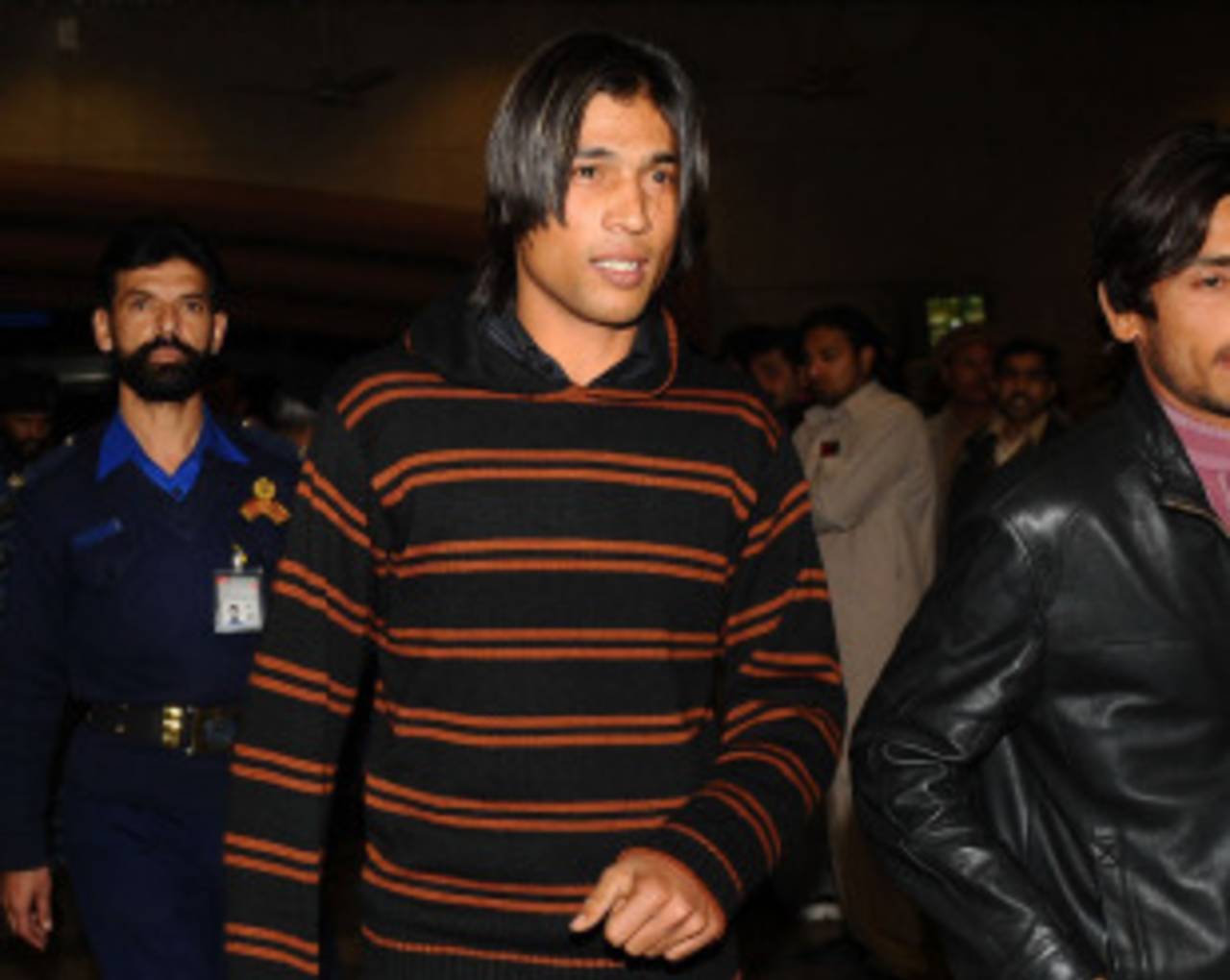Amir pleads guilty to spot-fixing
Mohammad Amir, the Pakistan fast bowler, has pleaded guilty to spot-fixing during the Lord's Test against England in 2010
Richard Sydenham at Southwark Crown Court
Nov 1, 2011, 3:12 PM

Mohammad Amir's lawyer said the fast bowler was pressured into spot-fixing • AFP
Mohammad Amir, the Pakistan fast bowler, has pleaded guilty to spot-fixing during the Lord's Test against England in 2010. He said there was "extreme pressure" on him and cited threats to his place in the side if he did not participate in the fixing.
He now faces a 'Newton Hearing' later this week at which Justice Cooke, without the presence of a jury, will determine his level of punishment
Amir gave his plea at the pre-trial at Southwark Crown Court on September 16, which had preceded the full trial attended by Salman Butt and Mohammad Asif, who pleaded not guilty to the charges against them. Reporting restrictions under the United Kingdom's laws meant Amir's plea could not be published so as not to bias a jury ruling on the other two players.
All three players faced charges of conspiracy to cheat, and conspiracy to obtain and accept corrupt payments, following the Lord's Test during which they allegedly conspired with agent Mazhar Majeed and other people unknown to bowl pre-planned no-balls. Butt and Asif were found guilty by a jury at the Southwark Crown Court on both counts on November 1.
Amir's basis of plea agreed by the prosecution was:
- The defendant's involvement was limited to the final Test match at Lord's between August 26 and 29, 2010.
- This was the defendant's first and only involvement and was, therefore, an isolated and one-off event.
- The defendant only became involved as a result of pressure (not amounting to physical threats) and influence, to the effect that, if he did not become involved, he would suffer serious professional implications to his future career.
"Amir wants to make it clear he wants to take full responsibility for what he did by bowling two deliberate no-balls," Amir's barrister Ben Emmerson QC said at the pre-trial. "This vulnerable 18-year-old boy, as he was then, was subjected to extreme pressure from those upon whom he should have been able to rely. He recognises the damage he has caused Pakistan cricket and he wishes to do his best to put that right."
Prosecution evidence, however, suggested that rather than being an innocent, naïve rookie who was taken advantage of, Amir seemed a willing conspirator, with text messages of fixing talk sent to two different Pakistan numbers that were recovered by police.
Of further significance was Amir's basis of plea - he owned up only to fixing the two no-balls at Lord's. This was questioned by the judge, Justice Cooke, because there was evidence to be presented by the prosecution that showed suspicious behaviour connected to other matches that summer, chiefly the third Test at The Oval.
On August 17, the eve of the Oval Test, Amir texted a Pakistani number with his bank details and asked why they were needed at that time.
On the same day, Amir had a conversation by text with a Pakistani unknown. It went: "How much and what needs to be done?" Then: "This is going to be too much mate." The Pakistani unknown said in one: "So in first three, bowl however you want, and in the last two, do eight runs?" These messages were translated from Urdu and were thought to be a repetition of instructions he had received at some point.
When the police raids were carried out on the Saturday evening of the Lord's Test at the Marriott Regents Park Hotel, Amir sent a text to another Pakistan number from the phone of Azhar Majeed, the older brother of Mazhar, to say: "Amir here, don't call my phone, ICC-police have taken my phone, are you able to delete those calls you made to me? If you can do it okay, don't reply." During the trial, the prosecution also accused Azhar Majeed of being involved in fixing matches.
Amir was also "well at it" - as chief prosecutor Aftab Jafferjee QC put it - before and during the Lord's Test with Mazhar Majeed. There were 65 forms of contact between Butt and Majeed, and Amir and Majeed in the 36 hours leading up to the Lord's Test. Asif was not in touch then.
The jury watched footage on TV sets in the court of Amir's behaviour after his no-balls. He repeatedly checked his spikes and Butt placed sawdust around the crease. Jafferjee called it "a performance". Two experts said the likelihood of correctly predicting when three no-balls would be delivered had a probability of a one in 1.5 million chance.
Amir was the Player of the Series for the Tests in England, having taken five-wicket hauls in his last two matches. His involvement in fixing cost him an ICC Emerging Player of the Year nomination.